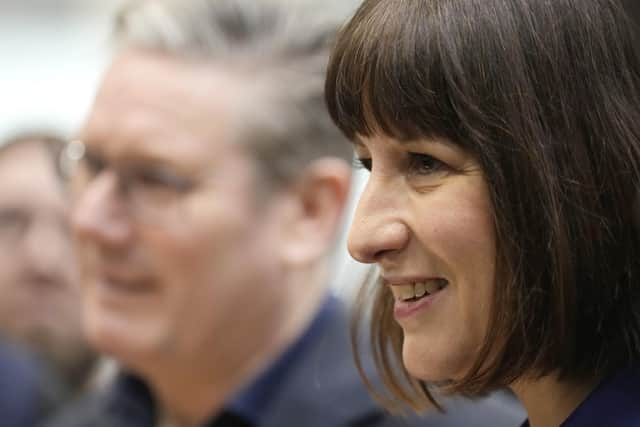Analysis: Labour’s £28bn U-turn is a lesson in the perils of opposition
It’s easy to blame the party’s historic post-financial crash dodginess on the economy as the reason for why this attack line does so well, but as Labour have found out this week, it's simply harder to put together a credible economic plan when you are outside of government.
Sir Keir Starmer this week announced, in what will come as a shock to nobody who has read a newspaper over the last month, that his party has scaled back its flagship green policy because it’s too expensive.
Advertisement
Hide AdAdvertisement
Hide AdIn short, Labour admitted that its sums do not add up, that it’s too expensive to borrow the money they need to do the things they want to do, and blamed the now-18-month old financial disaster of Liz Truss’ mini budget for the current day economic climate.


In reality, it is a wonder that a policy with such a hefty price tag has survived as long as it has.
The Government and its spending plans are at the mercy of global factors such as trade wars, actual wars, pandemics, financial meltdowns and the political pressures of striking workers, all of which seem to be happening with increasing and alarming regularity in recent years.
The opposition party is not only at the mercy of these factors, but are also subject to the government’s reaction to them, even if these decisions are not to actively disrupt opposition spending plans, they are certainly not done to make their life easier.
Advertisement
Hide AdAdvertisement
Hide AdThough government spending is not as simple as a household budget, imagine trying to sort out buying a new eco-friendly fridge when your partner is the one with the card.
Even if they haven’t “maxed out the credit card” as Labour suggests, then it is at the very least very hard to work out exactly how much money you have to play with.
Labour’s £28bn pledge was announced in September 2021 and has since survived five budgets, narrowly missing out making it six of the best next month.
That includes a reversal on the rise in National Insurance, cuts to National Insurance, a cancellation of the increase in corporation tax (which was then un-cancelled), increases to the minimum wage, cuts to future public sending, changes to debt targets and various other announced, cancelled and un-cancelled bits of spending along the way.
Advertisement
Hide AdAdvertisement
Hide AdWith so much chopping and changing of economic policy, it’s a wonder any opposition policy that pretends to be fully costed can last more than six months.
This is simply the harsh reality of life in opposition. If you’re not in Government, then you’re not making the decisions.
Thankfully for Labour, this may not be a reality it has to contend with for much longer unless the polls narrow significantly before the next election.